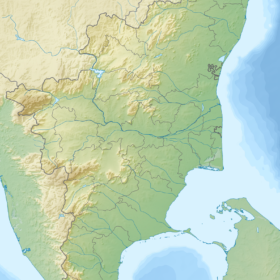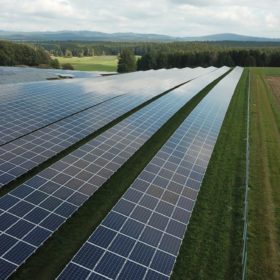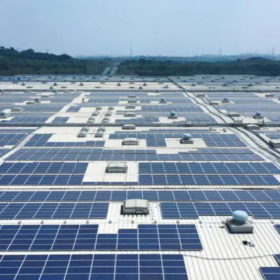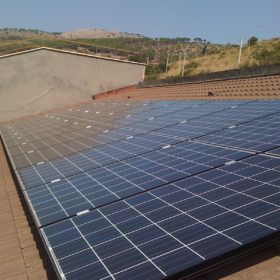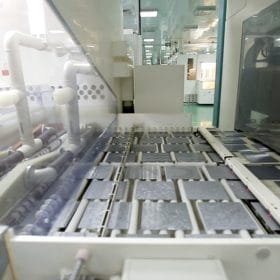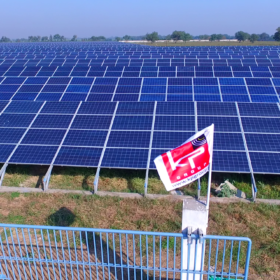SECI tenders EPC work for 40 MW conventional solar+10 MW agrivoltaics in Tamil Nadu
Bidders have until March 1 to bid for setting up the cumulative grid-connected solar PV capacity—including 40 MW conventional ground-based and 10 MW agrivoltaics—in Cuddalore and Tiruvannamalai districts.
India needs to adopt a balanced approach for solar manufacturing
A new report says the imposition of safeguard duties and basic custom duties is only a partial solution to help the domestically produced solar modules remain competitive with imported panels. The government needs to adopt a long-term strategy towards PV manufacturing that supports backward integration and sustained innovation.
NHPC tenders for 100 MW solar EPC work in Karnataka
Bids can be submitted until February 16 to install and commission the project at the Ultra Mega Renewable Energy Power Park (UMREPP) in Koppal District.
Vikram Solar launches 505W modules with M6 wafer
The Indian manufacturer has unveiled Series 6 mono-PERC modules in 120, 144, and 156 half-cell versions with claimed efficiency between 18.34% and 21.02%.
Catalyzing the growth of rooftop solar in India
Challenges like frequent policy and regulatory changes, high capital costs, low awareness, non-uniformity in approval processes across states, restriction on net metering, and additional charges by DISCOMs need to be addressed for rooftop solar to take off in India.
Tata Power partners SIDBI to launch low-cost finance for MSME rooftop solar
The financing scheme, available only to Tata Power customers, provides collateral-free loans at an interest rate less than 10% for both off-grid and on-grid rooftop solar connections.
ADB to provide $100 million to upgrade power distribution system in Bengaluru
The funds will be used to move about 7,200 km of overhead distribution lines underground. Besides, fibre-optical cables will be installed in parallel to the underground distribution cables to strengthen the communication network for smart metering, distribution automation, etc.
BHEL tenders for supply of minimum 8 million solar cells
Manufacturers have until January 11 to bid for the supply of an aggregate 8,352,000 quantity of multicrystalline and mono PERC silicon solar cells using five bus bars.
Consultant sought for 1.2 GW solar park in Uttar Pradesh
Bundelkhand Saur Urja Limited is looking to engage a consultant to develop the solar park in the Jalaun district. Only domestic consultancy firms registered in India can apply.
KPI Global signs solar power supply agreement for 2.5 MW
The Gujarat-based solar developer has signed solar power supply agreements with textile manufacturer Ginni Filaments Limited (for 1.2 MW) and Sankalp Paper Industries (1.3 MW).
